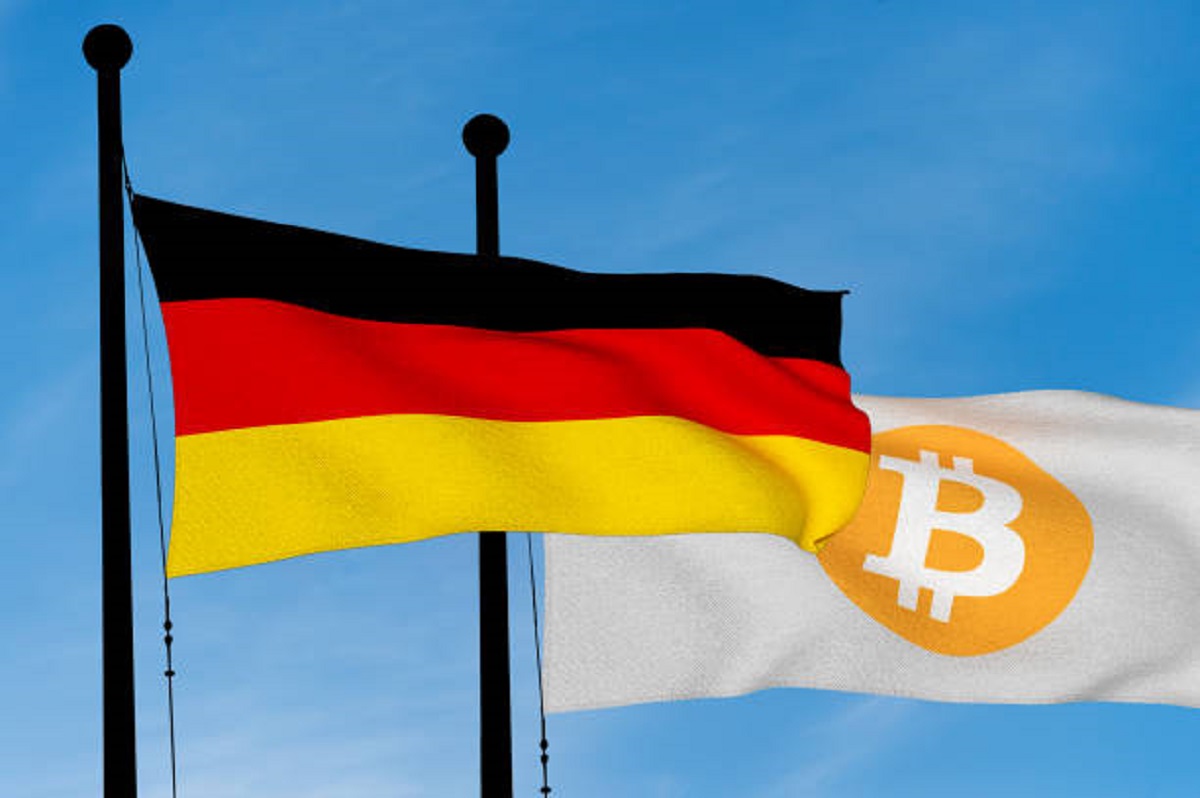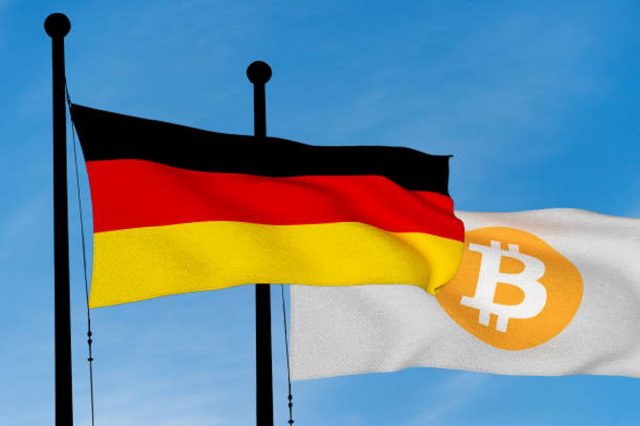Crypto regulation is important for the nascent sector to thrive in the mainstream economic world. Over the years, a Wild West spirit coupled with a growing fear of inflation made Germany’s largest city, Berlin, a focal point for blockchain technologies and digital currencies.
The alternative neighborhoods in Berlin have not been strangers to calls for revolution. While most of the calls came from squatters and anarchists in abandoned buildings. The calls were then taken up by crypto enthusiasts who dug Germany’s funky history and anti-establishment vibe.
In Berlin, many retailers and stores now accept crypto, especially Bitcoin. In that context, a growing community of cryptocurrency-related startups and investors now seek ways to make cryptos more accessible to daily consumers. Fabian Vogelsteller, a lead developer of Ethereum, once said:
“Berlin is the crypto capital of Europe if not the world.”
Related: German Regulators Approve $280 Million Ethereum Token Sale
Mr. Vogelsteller worked on Ethereum’s future in Germany. However, Berlin has managed to develop into a Bitcoin hub due to many early adopters living in the once-alternative Kreuzberg neighborhood. This district has always distrusted government-backed currencies, which is a throwback to the hyperinflation of the Weimar Republic. This stand is believed to have ignited rapid Bitcoin adoption in the city.
Mr. Vogelsteller was amused by the exploding prices in the crypto market. But, he is more interested in the development of blockchain that records the transaction in blocks. Every new transaction is checked, proofed, and added to an integrated list of all past transactions, a chain. The chain is maintained by many independent computers.
Most of the computers need to confirm any new transaction that is recorded. The confirmation needs massive computer power. Hence, the computers that participate in this process of confirming the chain are rewarded for ‘mining’ efforts with digital coins, like Bitcoin.
Bitcoin Mining In Berlin
The computing power that is required to run Bitcoin has become a major issue. Countries like China have banned bitcoin mining and set up crypto regulation measures that make it impossible for the cryptocurrency sector to thrive within their jurisdiction.
At some point, Bitcoin was said to be consuming more energy than Ireland. However, one Berlin firm came up with an efficient blockchain solution. Iota was launched by Dominick Schiener, an Austrian, and David Sønstebø, a Norwegian. They designed Iota to operate entirely as the currency that machines use among themselves as automation thrives. Mr. Schiener said:
“If the full potential of the Internet of Things is to be realized, you have to make it possible for machines to pay each other.”
Iota thrives on the blockchain’s distributed ledger concept but without any mining. The technology found support from the automotive sector, Germany’s biggest moneymaker. Volkswagen’s chief digital officer, Johann Jungwirth, said at one point that Iota is ‘very interesting’. He added:
“If cars are supposed to pay for charging or parking on their own, then you need a secure method.”
Crypto Adoption In Germany
Microsoft, VW. Deutsche Telekom and German utility Innogy are some of the notable firms that accept crypto payments. The digital currency boom also brought venture capital funds to Berlin.
Miriam Neubauer’s Catena Capital invested in Cryptotank and digital wallet Cryptonator, a network of traders. The startup charges members a small fee to access cryptos, similar to traditional investment banks. Neubauer also backed Herdius that is working on a cross-chain virtual currency exchange project.
The massive hype in the new sector pushed the German government to set up a crypto regulation task force to create laws to govern the industry. Despite all that hype, buying crypto and using blockchain technology is still challenging, mostly for the novices. Max Kordek launched Lisk, a startup that strives to make blockchain more accessible for other users.
Related: Lisk (LSK) Moves Up; Joining TokenPay & Litecoin Foundation Owned WEG Bank as Partner
Kordek said:
“All of the software and the wallets for cryptocurrencies are not very user-friendly.”
He funded the project by selling LISK currency and managed to raise 14,000 Bitcoins in the initial coin offering (ICO). At that time, the coins were worth €6 million ($7.2 million). Currently, they are valued at more than $850 million.
Bitwala is another Berlin startup that works to make Bitcoin more accessible to consumers. The platform offers basic banking services that change the digital currency into dollars and euros for a fee. The platform is also a cautionary tale as regulators and risk-averse companies have come into the space.
Germany’s BaFin financial regulator initially left the crypto space majorly untouched. However, it warned people against participating in crypto markets and fundraisers. But, as the industry kept growing, regulators came onboard showing that the crypto sector is maturing in Germany. Experts say that crypto regulation is important to enable the sector to attract institutional investors.
Crypto Regulation In Germany
The German Federal Financial Supervisory Authority (BaFin) strives to ensure that the country has a functional financial system. It also sets up measures to protect consumers from “black sheep.” Notably, the many Bitcoin start-ups and increased media exposure of the crypto space have pushed BaFin to take action.
BaFin unveiled a detailed opinion about the crypto space on December 19, 2013. It then went ahead in the publication to adopt a position on matters about supervisory law with regards to different crypto models.
Before that, the European Banking Authority (EBA) had published a consumer-oriented opinion about virtual currencies. But, the EBA opinion did not have any clear legal conclusion. It just highlighted the legal, actual, and tax risks that accompany investing, holding, and trading in cryptos like Bitcoin.
EBA mentioned that investors may lose their money when and if they engage in business with untrustworthy trading platforms. Some of the common crypto crimes include money laundering, rug pulls, and terrorism funding. Hence, crypto regulation is necessary.
Although bitcoin is referred to as a ‘digital currency’ the term is not correct in the legal space. A unit only becomes a currency when issued by a central bank. Since bitcoin does not satisfy this requirement, BaFin says that it is neither e-money, legal tender, money, nor foreign exchange notes and coins.
BaFin insists that bitcoin is a ‘unit of account’ as elaborated in the German Banking Act. It is a unit of value that is not denominated for legal tender that is comparable to foreign exchange.
But, the customers that pay their bills using Bitcoin do not have to worry about a BaFin license. Moreover, no license is necessary for just using BTC as a substitute currency for sales activities. Hence, businesses can accept the flagship crypto without any hiccups. Through that service, the entrepreneur does not have to provide any banking transactions or financial services.
Related: Crypto Salaries Gain Regulatory Recognition Around the World
Things change when the business owner uses a payment provider to conduct the payment process. the payment provider may send the bitcoin payments from the customer to the entrepreneur for a fee. They may also send the fiat money equivalent and retain the cryptos. In case the payment provider has no BaFin license, the regulator initiates legal proceedings against the business owner.
BaFin License Necessary For Commercial Bitcoin Transactions
A license is mandatory for commercial transactions like mining pools. Crypto regulation becomes strict for anyone who participates in a way to help in sustaining the existing market and creating new opportunities for other investors. The mining pools and advertisers who buy and sell bitcoin need a license to operate within Germany.
Related: Germany’s BaFin Clarifies Licensing Process for Foreign Crypto Custodians
Crypto Taxation In Germany
Bundeszentralamt für Steuern (BZSt) or the German Federal Central Tax Office considers bitcoin and other cryptos as private money for taxation purposes. Crypto is not legal tender, foreign currency, or property when taken in the context of the German Tax Acts.
Notably, the Federal Ministry of Finance (BMF) also said that cryptocurrency transactions made by individuals do not attract any Value Added Taxes (VAT) for all EU member states.
Sales under 600 Euros have full tax exemptions for individuals in Germany. Such small transactions fall under tax law 23 EstG. Furthermore, individuals who hold crypto for more than a year do not face any tax liability on their earnings. It means that any increase in the value of the crypto that is held for more than a year is tax-free.
On the other hand, any cryptocurrency that is sold after being held for less than 12 months attracts income tax. Section 23 of the German Income Tax Act covers speculative transactions that are made using private money because cryptocurrency is classified as normal intangible assets.
Related: What you should know about Cryptocurrency Taxation
Crypto regulation through taxation is covered in Section 22 of the Income Tax Act in Germany. For anyone trading crypto, the net amount gained or lost at the time of selling is the amount that is taxed as income.
Taxation applies irrespective of whether one is exchanging crypto for another or crypto for fiat money. Investors are also allowed to deduct fees to make up the cost basis of the transaction.
Nonetheless, in cases where crypto transactions are perceived to be financial instruments like futures or swaps, they cannot net their losses or gains against their available passive cryptocurrency investments.
In the case of mining, it is taxed as other income with regards to Section 23 of the Income Tax Act for individuals. The taxable amounts are the net profit on the cryptocurrency. Anyone mining bitcoin is taxed on the sale price of the crypto at the time of disposition net the costs that are associated with the mining process.
Bitcoin and crypto mining as a company is subjected to other taxation rules covered in the business tax obligations. Buying goods and services using cryptocurrency in Germany is considered like trading crypto in the markets.
For instance, you get bitcoin worth $8,000 and then buy a motorbike using the bitcoin when it is worth $10,000, you will be taxed on the $2,000 net gain on the bitcoin. It is considered as normal taxable income. But, you may avoid this tax by holding the bitcoin for over a year before making any purchase.












